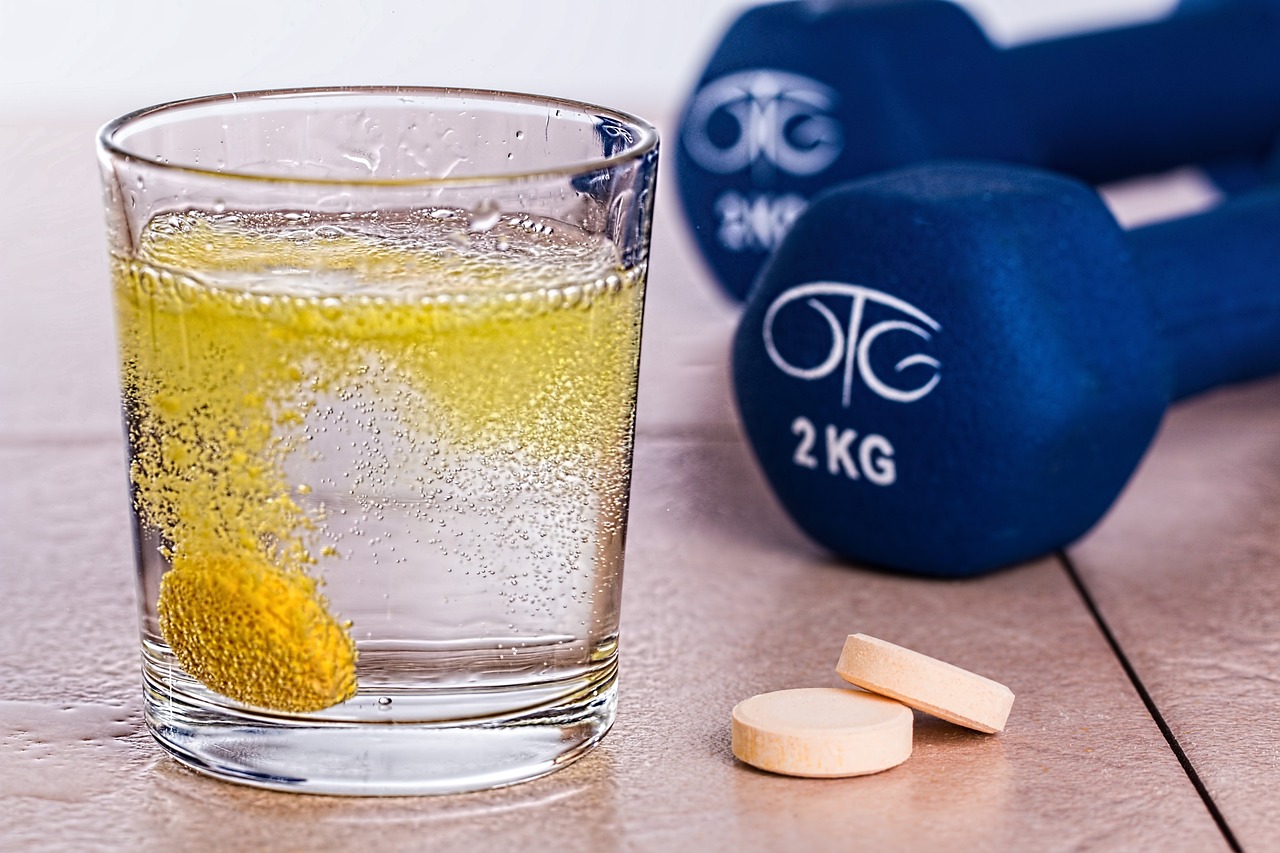What Is The Role Of Supplements In Fitness?

You’re dedicated to living an active and healthy lifestyle, constantly seeking ways to enhance your fitness journey. As you strive to achieve your fitness goals, you may have wondered about the role of supplements in supporting your progress. Whether you’re a beginner or a seasoned athlete, this article aims to explore the benefits and considerations of incorporating supplements into your fitness regimen. From boosting performance to aiding in recovery, let’s uncover the potential impact of supplements on your fitness journey.

Importance of Nutritional Supplements
When it comes to maintaining a healthy lifestyle and achieving your fitness goals, proper nutrition plays a crucial role. While a well-balanced diet should ideally provide all the essential nutrients, sometimes it can be challenging to meet all your nutritional needs solely through food. This is where nutritional supplements come into the picture, serving as a valuable addition to your overall fitness regimen.
Meeting Nutritional Needs
One of the primary reasons why nutritional supplements are important is to help you meet your daily nutritional requirements. These supplements are specially formulated to provide concentrated amounts of essential vitamins, minerals, and other nutrients that may be lacking in your diet. By filling in the gaps, supplements ensure that your body has everything it needs to function optimally and maintain overall health.
Enhancing Performance and Recovery
In addition to meeting your nutritional needs, supplements can also play a key role in enhancing your athletic performance and aiding in post-workout recovery. Many fitness-oriented supplements are designed to provide specific benefits that can help you take your workout to the next level.
Improving Body Composition
Another significant benefit of nutritional supplements is their potential to improve body composition. Whether your goal is to lose fat, gain muscle, or both, certain supplements can assist in achieving these objectives. By supporting fat loss, preserving lean muscle mass, boosting metabolism, and promoting optimal hormonal balance, supplements can help you attain the body composition you desire.
Types of Fitness Supplements
There is a wide variety of fitness supplements available in the market today, each with its own unique benefits. Let’s delve into some of the most popular types of supplements and how they can contribute to your fitness journey.
Protein Powders
Protein powders are perhaps the most well-known and widely used fitness supplements. They are especially popular among athletes and fitness enthusiasts looking to increase their protein intake conveniently. Protein powders come in various forms, including whey protein, casein protein, and plant-based protein. These powders provide a readily available source of high-quality protein, essential for muscle repair, growth, and recovery.
Branched-Chain Amino Acids (BCAAs)
BCAAs are a specific type of amino acids that play a crucial role in muscle protein synthesis. They are often found in protein-rich foods but are also available as standalone supplements. BCAAs are known for their ability to reduce exercise-induced muscle damage and decrease fatigue. Including BCAAs in your supplement regimen can help enhance recovery and support muscle growth.
Creatine
Creatine is a popular supplement known for its ability to increase high-intensity performance, muscle strength, and power. It works by replenishing the ATP (adenosine triphosphate) stores in your muscles, allowing you to perform better during intense workouts. In addition to its performance benefits, creatine has also been shown to promote muscle growth and increase muscle volume.
Pre-Workout Supplements
Pre-workout supplements are designed to provide a boost of energy, focus, and endurance before your workout session. They often contain ingredients such as caffeine, beta-alanine, and B vitamins, which help improve mental alertness, delay fatigue, and increase blood flow to the muscles. Including a pre-workout supplement in your routine can help you push through challenging workouts and maximize your performance potential.
Omega-3 Fatty Acids
Omega-3 fatty acids are essential fats that offer a wide array of health benefits. While they are not specific to fitness, incorporating omega-3 supplements into your routine can support overall well-being. These fatty acids have been shown to reduce inflammation, support heart health, and promote brain function. Some studies have also suggested that omega-3s may have a positive impact on exercise performance and recovery.
Multivitamins
Multivitamins are comprehensive supplements that contain a blend of essential vitamins and minerals. They are an easy and convenient way to ensure that you are meeting your daily nutrient requirements. While a well-balanced diet should ideally provide all the necessary nutrients, a multivitamin can act as an extra safeguard to cover any potential gaps in your diet.
Glutamine
Glutamine is an amino acid that is naturally found in your body. However, during intense exercise, glutamine levels can become depleted, leading to decreased performance and impaired recovery. Supplementing with glutamine can help replenish these levels and promote muscle repair and recovery after intense workouts.
Beta-Alanine
Beta-alanine is an amino acid that is known for its ability to increase intramuscular carnosine levels. Increased carnosine levels have been linked to improved exercise performance, decreased fatigue, and enhanced muscle endurance. Adding beta-alanine to your supplement routine can help you push through high-intensity workouts and improve overall performance.
Caffeine
Caffeine is a stimulant that is found in various foods and beverages, including coffee and tea. It is known for its ability to increase alertness, focus, and energy levels. When consumed in appropriate amounts, caffeine can provide a pre-workout boost and improve exercise performance. However, it is important to be mindful of your caffeine intake and not exceed recommended limits.
B Vitamins
B vitamins, particularly B6, B12, and folate, play a crucial role in energy production and metabolism. They are involved in converting food into usable energy and supporting the functioning of various enzymes in your body. Including B vitamins in your supplement regimen can help support energy levels, metabolism, and overall cellular function.
Meeting Nutritional Needs
Supplements can help address various aspects of meeting your nutritional needs, ensuring that your body has all the necessary nutrients for optimal health and performance.
Filling Nutrient Gaps
One of the primary benefits of nutritional supplements is their ability to fill in the gaps in your diet. Despite your best efforts to eat a well-balanced diet, it’s possible to miss out on certain nutrients due to dietary restrictions, limited food choices, or busy schedules. Supplements can act as a safety net, providing concentrated amounts of essential vitamins, minerals, and other nutrients that may be lacking in your everyday meals.
Providing Convenient and Quick Nutrition
In our fast-paced lives, it’s not always easy to prepare and consume nutritious meals throughout the day. Whether you’re constantly on the go or struggling to find the time to cook, supplements can provide a quick and convenient solution. With just a shake or a pill, you can ensure that you’re getting the necessary nutrients without sacrificing time or compromising your health.
Aiding in Weight Gain or Weight Loss
Supplements can also play a role in aiding weight gain or weight loss efforts, depending on your specific goals. For individuals looking to gain weight, certain supplements can provide additional calories, protein, and other nutrients necessary for muscle growth and overall weight gain. On the other hand, specific supplements can support weight loss by promoting satiety, increasing metabolism, and assisting in fat burning.
Addressing Specific Dietary Requirements
If you have specific dietary requirements, such as being vegetarian or vegan, lactose intolerant, or gluten-sensitive, nutritional supplements can help address any potential nutrient deficiencies. Plant-based protein powders, for example, can provide a suitable alternative to animal-based protein sources for those following a vegetarian or vegan diet. Similarly, supplements fortified with specific nutrients can help individuals with dietary restrictions meet their nutritional needs effectively.
Enhancing Performance and Recovery
Supplements can have a significant impact on your athletic performance and aid in the recovery process after intense workouts.
Increasing Strength and Power
Certain supplements, such as creatine, have been extensively studied for their ability to enhance strength and power. By boosting ATP production and increasing muscle stores of phosphocreatine, creatine supplementation can lead to improved performance in high-intensity, short-duration activities such as weightlifting and sprinting.
Delaying Fatigue
Fatigue is a common occurrence during intense workouts, limiting your ability to perform at your best. However, certain supplements, including BCAAs and beta-alanine, have been shown to delay fatigue by reducing exercise-induced muscle damage and enhancing muscle endurance. By combating fatigue, these supplements can help you push through tough workouts and reach new performance milestones.
Promoting Muscle Growth and Repair
Muscle growth and repair are essential for achieving fitness goals, and supplements can play a significant role in supporting these processes. Protein powders, particularly whey protein, are well-known for their ability to promote muscle protein synthesis and accelerate muscle recovery after exercise. By providing a readily available source of amino acids, protein supplements can aid in muscle repair, growth, and adaptation to training.
Reducing Exercise-Induced Inflammation and Soreness
Intense exercise often leads to inflammation and muscle soreness, which can hinder your ability to train consistently. Supplements like omega-3 fatty acids and glutamine have been shown to have anti-inflammatory properties and may help reduce exercise-induced inflammation, promoting faster recovery and minimizing post-workout soreness.

Improving Body Composition
Supplements can be a valuable tool when it comes to improving body composition and achieving your desired physique.
Supporting Fat Loss
Many supplements are designed to aid in fat loss by increasing metabolism, promoting fat breakdown, and suppressing appetite. Ingredients like green tea extract, caffeine, and conjugated linoleic acid (CLA) have been shown to have potential thermogenic and fat-burning properties. When combined with a balanced diet and regular exercise, these supplements can provide an extra boost to your weight loss efforts.
Preserving Lean Muscle Mass
When aiming to lose weight, it’s essential to preserve lean muscle mass to maintain a healthy body composition. Branched-chain amino acids (BCAAs) and protein powders, particularly those with a high leucine content, can help preserve muscle during periods of calorie restriction. By supplying the necessary amino acids, these supplements can ensure that your body prioritizes fat burning while minimizing muscle breakdown.
Boosting Metabolism
A faster metabolism can make it easier to maintain a healthy weight and achieve your fitness goals. Some supplements, such as green tea extract, caffeine, and certain thermogenic blends, have been shown to have metabolism-boosting properties. By increasing energy expenditure and fat oxidation, these supplements can help rev up your metabolism and support weight management.
Promoting Optimal Hormonal Balance
Hormonal balance is crucial for both overall health and body composition. Certain supplements, such as omega-3 fatty acids and vitamin D, have been associated with favorable changes in hormone levels. By promoting optimal hormonal balance, these supplements can contribute to improved body composition and overall well-being.
Protein Powders
Protein powders have become synonymous with fitness and are widely regarded as an essential component of any supplement regimen.
Whey Protein
Whey protein is the most common and popular form of protein powder. Derived from milk, whey protein is a complete protein that contains all the essential amino acids your body needs. It is quickly absorbed and digested, making it an excellent choice for post-workout recovery. Whey protein has been shown to enhance muscle protein synthesis, promote muscle recovery, and support muscle growth.
Casein Protein
Casein protein, also derived from milk, is known for its slow-release properties. Unlike whey protein, casein forms a gel-like substance in the stomach, resulting in a sustained release of amino acids over a more extended period. This slow-release characteristic makes casein protein an excellent choice for a bedtime snack or a prolonged period without food, helping to minimize muscle breakdown and promote muscle growth.
Plant-Based Protein
Plant-based protein powders have gained popularity among those following vegetarian, vegan, or dairy-free diets. These powders are typically made from various plant sources, such as peas, rice, hemp, or soy. While they may not always provide a complete amino acid profile, combining different plant-based protein sources can ensure you receive all the essential amino acids. Plant-based protein powders are a viable option for individuals with specific dietary preferences or restrictions.
Benefits of Protein Supplementation
Protein supplementation offers several benefits for fitness enthusiasts. Firstly, it provides a convenient and efficient way to increase your protein intake, especially if you struggle to meet your needs through whole foods alone. Protein powders are portable, easy to prepare, and can be customized according to your preferences. Secondly, protein supplementation can help support muscle recovery and growth, particularly when consumed post-workout. By providing the necessary amino acids, protein powders can initiate muscle protein synthesis and optimize muscle repair and adaptation to exercise.

Branched-Chain Amino Acids (BCAAs)
BCAAs consist of three essential amino acids: leucine, isoleucine, and valine. These amino acids are particularly critical for muscle protein synthesis and recovery.
Muscle Protein Synthesis
Leucine, one of the key BCAAs, has been shown to activate muscle protein synthesis directly. By triggering the mTOR pathway, leucine promotes the synthesis of new muscle proteins, leading to greater muscle growth and repair. Supplementing with BCAAs can ensure that you have an adequate supply of leucine to support optimal muscle protein synthesis.
Reducing Exercise-Induced Muscle Damage
Intense exercise can cause micro-tears in muscle fibers, resulting in muscle damage. BCAAs have been shown to reduce exercise-induced muscle damage, leading to faster recovery and less muscle soreness. This effect is particularly beneficial for individuals engaging in high-intensity or resistance training, where muscle damage is more prominent.
Decreasing Exercise-Induced Fatigue
BCAAs, especially when consumed in a ratio with higher leucine content, may help decrease exercise-induced fatigue. By competing with the amino acid tryptophan, BCAAs can reduce the production of serotonin in the brain. Serotonin is known to contribute to feelings of fatigue and tiredness during prolonged exercise. By limiting serotonin production, BCAAs can help delay fatigue and improve endurance during workouts.
Creatine
Creatine is a naturally occurring compound found in small amounts in foods like meat, poultry, and fish. It plays a vital role in energy production, particularly during short bursts of high-intensity exercise.
Increased High-Intensity Performance
Supplementing with creatine has been shown to improve high-intensity performance, particularly in activities that rely on short bursts of energy. By replenishing ATP stores, creatine supplementation can provide the energy necessary for maximum effort during activities like weightlifting, sprinting, and jumping.
Muscle Strength and Power
Creatine supplementation has consistently demonstrated its ability to increase muscle strength and power. By improving phosphocreatine stores in the muscles, creatine allows for more rapid ATP regeneration during high-intensity exercise. This increased energy availability translates into improved strength and power output, allowing you to lift heavier weights or perform explosive movements more effectively.
Muscle Growth and Volume
In addition to its performance-enhancing effects, creatine has also been shown to promote muscle growth and increase muscle volume. By stimulating the processes involved in muscle protein synthesis, such as mTOR signaling, creatine supplementation can contribute to greater muscle hypertrophy over time. This makes it a highly popular supplement among those looking to increase muscle size and improve body composition.
Pre-Workout Supplements
Pre-workout supplements are designed to provide a range of benefits to enhance your performance during workouts.
Enhanced Energy and Focus
One of the primary advantages of pre-workout supplements is their ability to provide an energy boost. Ingredients such as caffeine, taurine, and B vitamins help increase alertness, focus, and mental clarity, allowing you to tackle your workout with greater intensity and concentration.
Improved Endurance
Pre-workout supplements can also help improve endurance by reducing fatigue and enhancing aerobic capacity. Ingredients like citrulline malate and beta-alanine have been shown to increase nitric oxide production, leading to improved blood flow, better oxygen delivery, and enhanced endurance during extended periods of exercise.
Increased Blood Flow and Nutrient Delivery
Certain pre-workout supplements contain ingredients that help increase blood flow to the muscles. This improved blood flow ensures that your muscles receive a steady supply of oxygen and nutrients during exercise, contributing to better performance and faster recovery. Nitric oxide boosters, like L-arginine and citrulline, are commonly found in pre-workout supplements for this purpose.
B Vitamins
B vitamins are essential for energy production, metabolism, and overall cellular function. Including B vitamins in your supplement regimen can have numerous benefits for your fitness journey.
Energy Production
B vitamins, particularly B6, B12, and folate, are involved in the conversion of food into usable energy. They play key roles in carbohydrate, protein, and fat metabolism, ensuring that your body efficiently extracts energy from the foods you consume. By including B vitamins in your supplement routine, you can support optimal energy production and improve exercise performance.
Metabolism Boost
B vitamins are vital for maintaining a healthy metabolism. They help regulate numerous metabolic pathways and ensure that your body efficiently utilizes nutrients. Certain B vitamins, such as B5 (pantothenic acid), are directly involved in energy metabolism and can enhance metabolic processes. By supplementing with B vitamins, you can support a healthy metabolism and aid in weight management efforts.
Cellular Function Support
B vitamins are crucial for the proper functioning of cells throughout your body. They are involved in DNA synthesis, nerve function, and the production of red blood cells. By ensuring that you have an adequate intake of B vitamins, you can support overall cellular function and contribute to optimal health and performance.
In conclusion, nutritional supplements play a significant role in supporting your fitness journey. They can help you meet your nutritional needs, enhance performance and recovery, and improve body composition. Whether it’s protein powders, BCAAs, creatine, or pre-workout supplements, each type of supplement offers unique benefits that can contribute to your overall health and fitness goals. By incorporating the right supplements into your routine and combining them with a balanced diet and regular exercise, you can optimize your results and take your fitness journey to new heights. Remember to consult with a healthcare professional or registered dietitian before starting any new supplement regimen to ensure it aligns with your individual needs.
